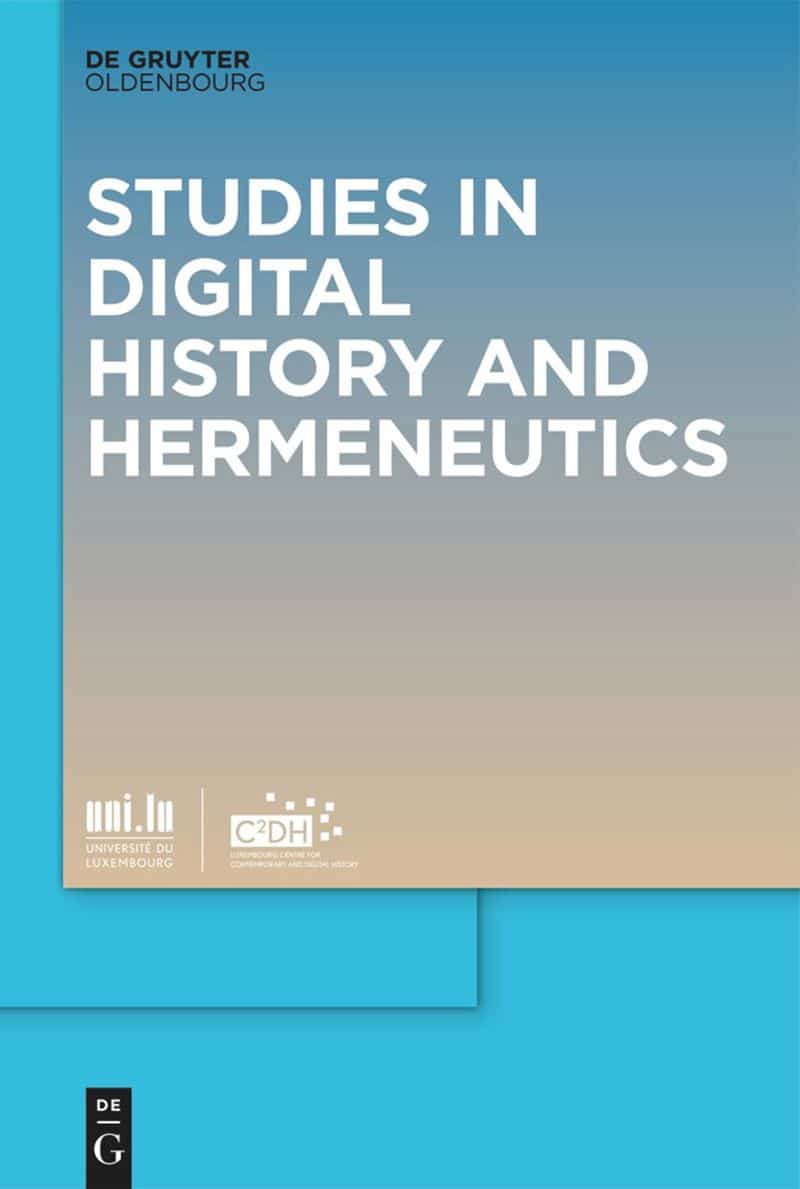Digital Humanities – A Science unto Itself? A Conversation with Valérie Schafer
The digital humanities are up-and-coming, but what's the buzz all about? We talked with historian Valérie Schafer about the challenges and developments of the humanities in an increasingly fast-paced and data-driven world.
What does it mean to be a digital scholar? The answers to this seemingly simple question are probably as diverse as the interdisciplinary field of digital humanities itself. To learn more about the ins and outs of the emerging research area, we invited Prof. Valérie Schafer from the Luxembourg Centre for Contemporary and Digital History (C2DH) for an interview.
Valérie Schafer has been a Professor in Contemporary European History at the C2DH since 2018, where she does research on the history of the Internet and the Web, the history of European digital cultures and infrastructures, and born-digital heritage. Previously, she worked at The French National Centre for Scientific Research (CNRS). She is furthermore one of the co-editors of the book series “Studies in Digital History and Hermeneutics”.
With De Gruyter acquisitions editor Rabea Rittgerodt, she talked about her own path in the digital humanities, shared passions among digital scholars, cultural changes as well as the importance of preserving our digital heritage in times of crises. The interview is available on Youtube as well as a podcast. Further down, you can also find a short excerpt in written form.
You are currently viewing a placeholder content from YouTube. To access the actual content, click the button below. Please note that doing so will share data with third-party providers.
You can find our podcast on Soundcloud, Spotify and Apple Podcasts.
You are currently viewing a placeholder content from SoundCloud. To access the actual content, click the button below. Please note that doing so will share data with third-party providers.
Excerpt from the Interview:
Rabea Rittgerodt: How would you define Digital Humanities?
Valérie Schafer: That’s very easy – absolutely no controversy and discussion about it! (laughs)
No, of course I cannot give you a unique definition because there are a lot of people trying to define digital humanities and it’s quite complex. I would prefer not to give a precise definition, but rather to say that for me it’s an interdisciplinary field, a transversal one. It’s a community – or several communities.
There are many communities around the world – may they be German speaking, may they be French speaking – communities like Humanistica. C2DH from the University of Luxembourg will welcome this year DH Benelux, which is related to the countries of Benelux, but is also open to a lot of other researchers. You have a lot of associations, but there is one big community of digital humanities with a common interest in the intertwinement between computer science and humanities.
“Digital humanities is not just about humanities and computers.”
But digital humanities is not just about humanities and computers. It’s also about networks and shared dialogue. It’s a mixture of researchers, including engineers and developers. We now have all these people, who are so important, talking with each other. I should also not forget archivists, editors, and people in research dissemination. All of them are in the field of digital humanities, sharing not only tools but also values. For example, the question of open and fair data is very important for this community. Digital hermeneutics, having a reflexive attitude towards data – these also, I would say, constitute the spirit of digital humanities.
To summarize, it’s a multi- and interdisciplinary field at the intersection of humanities and computer science, which is based on a shared passion for research, creativity, new ways of working, and values. There is a lot of heterogeneity in this field. There are people who are experts in XML, text mining, or linguistics. Others are more into machine learning, network analyses, visualization, topic modeling, sentiment analyses… A digital humanist doesn’t have to be an expert in all these fields. It’s quite impossible. But they will find a shared dialogue and shared interest at a meta level, which is not only based on one kind of tool or one kind of research.
Learn more in this related book series from De Gruyter
Also, make sure to check out our new Open Access “Journal of Digital History”, a joint initiative of the Luxembourg Centre for Contemporary and Digital History (C²DH) and De Gruyter.
You are currently viewing a placeholder content from YouTube. To access the actual content, click the button below. Please note that doing so will share data with third-party providers.
[Title image by Alina Grubnyak via Unsplash
